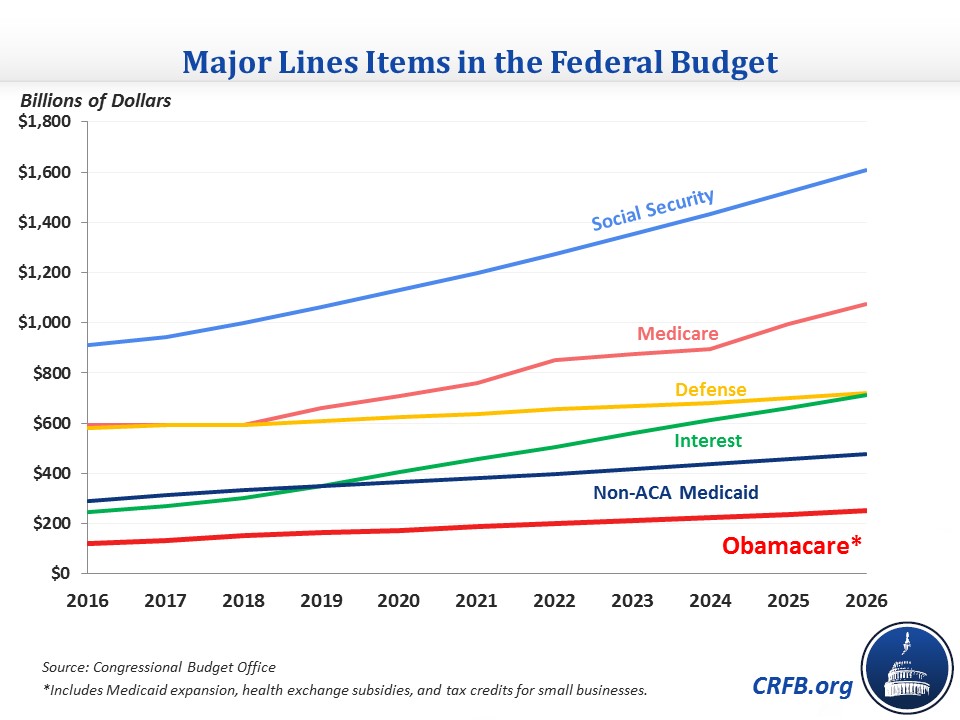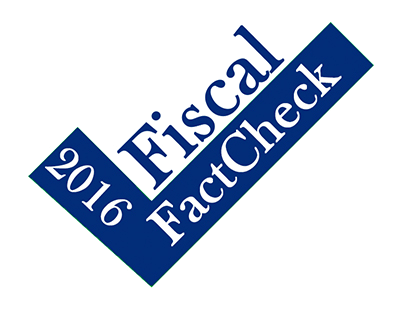Will Obamacare Be One of the Biggest Line Items in the Budget?
During the second presidential debate on October 9, Donald Trump said in response to a question about the Affordable Care Act ("Obamacare"), "It’s going to be one of the biggest line items very shortly." Obamacare is the sixth largest line item in the budget in Fiscal Year (FY) 2016 and will still be the sixth largest item in a decade, if you combine the elements of the coverage expansions – the Medicaid expansion, the subsidies for health insurance purchased on the exchanges, and to a much lesser extent the small business tax credits. We rate Trump's statement as largely false.
In FY 2016, the federal government is estimated to have spent $119 billion on the coverage provisions in the Affordable Care Act. This total includes $74 billion for the Medicaid expansion, $43 billion in premium and cost-sharing subsidies for health insurance purchased in the exchanges, and $1 billion in tax credits for small businesses who offer health insurance. As a whole, Obamacare ranks sixth in spending behind Social Security ($910 billion), Medicare ($592 billion), defense ($579 billion), the non-ACA portion of Medicaid ($291 billion), and net interest on the debt ($248 billion) and just ahead of veterans' benefits other than health care ($109 billion).
By FY 2026, the latest year that the Congressional Budget Office (CBO) makes projections for specific programs, Obamacare would still be sixth at $252 billion, behind Social Security ($1.6 trillion), Medicare ($1.1 trillion), defense ($719 billion), interest ($712 billion), and non-ACA Medicaid ($477 billion). Thus, over the next decade, Obamacare will fall further behind the fifth largest program both in dollar terms and, to a lesser extent, as a percent of Gross Domestic Product (GDP).

Trump's statement suggests that spending on the ACA's coverage expansion will surge in the coming years compared to other programs. However, CBO projects that it is currently the sixth largest line item and will remain in that spot over the next decade. Our ruling is that his claim is largely false.

